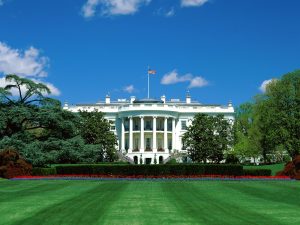By Libya Herald reporter.

Tunis, 4 February 2017:
The first US-Libyan business conference of the Trump era has been postponed due to the new president’s decision to temporarily ban Libyans and the nationals from six other Arab or Middle Eastern states from entering the US.
“The presidential executive decision banning Libyan passport holder from entering into the USA rendered it difficult for our invited speakers, sponsors and participants to be with us at this conference,” said the organisers, the National Council on US-Libya Relations (NCUSLR).
The conference was to have been held in Washington on 16 February and would have included speakers such as NOC head Mustafa Sanalla and former prime ministers Ali Zeidan and Mahmoud Jebril.
“Our efforts to secure exceptions for visas was hampered by the absence of a functional administration ready to respond and deal effectively with the untoward effects of this ban and leaving very little time to rearrange other logistics,” NCUSLR said in a clearly angry response.
It continued in similar, critical vein: “While we may understand the importance of homeland security, we believe that better anticipation and consideration of implications of the order would have led to less damage to American institutions, organizations and individuals.”
The council also bemoaned the “financial and manpower burden” the postponement had caused the organisation.
A new date for the conference will be announced soon.
Trump’s executive order also bans the entry of citizens from Iran, Iraq, Somalia, Sudan, Syria and Yemen.
However, last night a federal judge in Seattle imposed a nationwide, temporary block on the executive order. Judge James Robart made the decision after the state of Washington challenged Trump’s order. The president, though, is vowing to overturn the ban and in a Tweet described Robart as a “ so-called judge” and his decision as “ridiculous”.
Former US president Barack Obama is one of many influential international figures to condemn the ban.
“The President fundamentally disagrees with the notion of discriminating against individuals because of their faith or religion,” his spokesman said in a statement.







